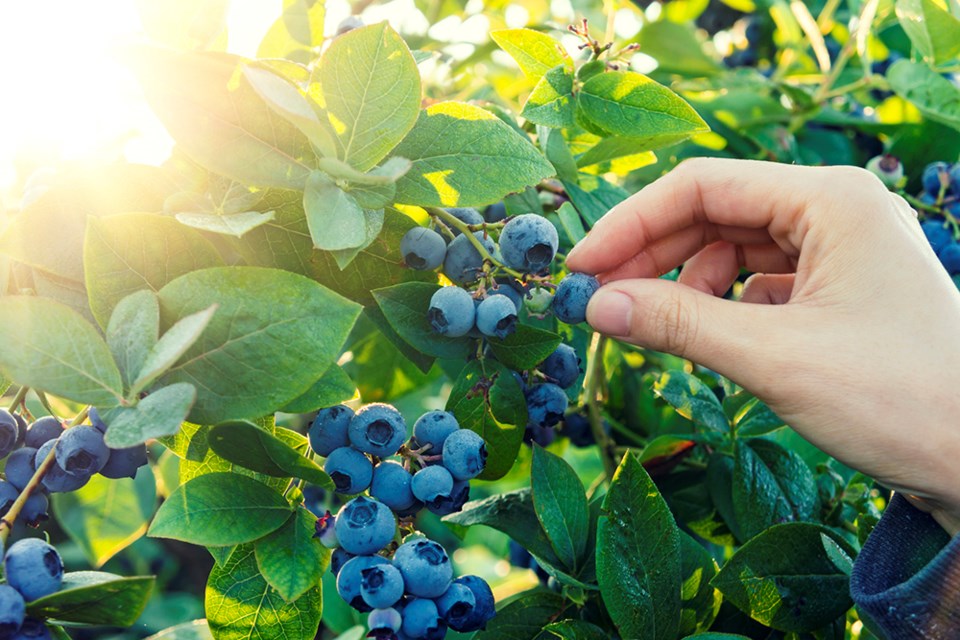A person cannot live on cherries alone – or can they? This is the time of year west coasters could seriously start considering becoming fruitarians.
Salmonberries are being replaced by huckleberries and early blackberries along trails and alleyways. Cherries are being dropped off by the bucketload on doorsteps, and plums and apples are weighing heavy on tree limbs.
What are we to do with this, at times overwhelming, abundance?
If canning and making jam seems beyond your available skill set or energy, there are simple methods for preserving summer’s bounty.
Flash freezing berries and de-pitted cherries on cookie sheets and then pouring them into freezer bags will keep them ready for smoothies, crumbles and even wine making endeavours in the fall. The trick is to freeze right after picking so they last up to six months. Vacuum-sealed bags can more than double storage time.
Now might be a great time to invest in a freezer if you don’t already have one. You could also enquire with friends and family who might be willing to go in on hosting a chest freezer in their basement for you to raid (and contribute to) on visits.
Local exchange forums often have secondhand freezers up for grabs, or you could invest in a newer energy efficient appliance for long term savings on your hydro bill. If your freezer is already full, you could spend a hot afternoon enjoying the cool reward of going through it to find what food has been freezer burned or that you could give away because it isn’t making its way to your plate.
Dehydrators are also a great investment. Simple dehydrators can even be fashioned easily by those who enjoy tinkering in their shed. Dehydrating fruit into nourishing snacks like fruit leather and crisp chips is a great way to ensure the quality of the fruit you consume.
Berries and fruit are vulnerable to pests often because of their thin skin and commercial growers may rely on pesticides and herbicides to grow their crop. To avoid these, you can harvest from nature, front yards, chemical-free orchards and u-pick farms.
Local fruit comes with a lighter footprint, having such a short distance from tree or bush to plate or palate. We can also avoid much of the plastic karma involved in industrially grown food when we wild harvest, grow ourselves or support local farmers.
Not all of us have an orchard in our backyard, but we often know someone who does. A single plum tree can produce over a hundred pounds of fruit in a good year, so we often need help managing nature’s bountiful summer gifts.
Picking before flies or bears take an interest can be stressful for homeowners, and many are happy to collaborate with neighbours in the picking and sharing of the harvest. Many communities have local food cooperatives that facilitate fruit tree gleaning by volunteers who share the pick with the owner and local charities. In qathet Regional District, sign up to have your tree harvested or to volunteer pick through SkookumFood.ca.
Lest we forget, fruit straight off the bush, tree and vine is an incredible treat. Enjoy this season of crumbles, smoothies and colourful berries topping fresh greens.
Let’s Talk Trash is qathet Regional District’s waste-reduction education program. For more information, email [email protected] or go to LetsTalkTrash.ca.



